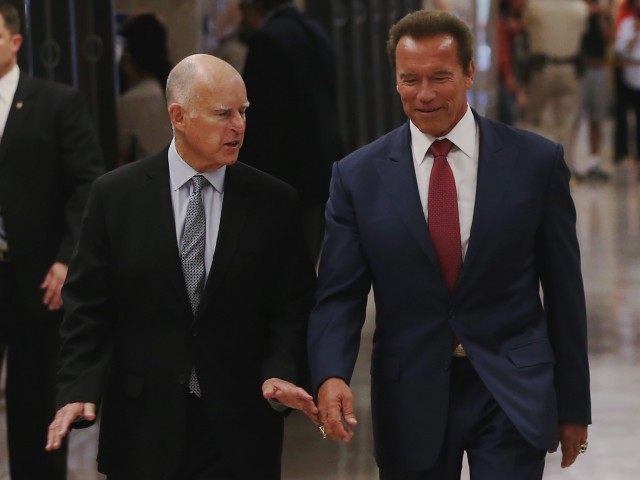Amplifying AB 32, the Schwarzenegger-era cap-and-trade law, Democrat legislators in California are set to impose even more aggressive greenhouse gas reductions that would lower greenhouse gas emissions (GHG) to 80% below 1990 levels by the year 2050.
Explosive words were exchanged between Democrats and Republicans over the climate change legislation on California’s Senate floor Wednesday.
Democrats are billing the legislative actions as beneficial to the environment and jobs. Senate President Pro-Tem Kevin DeLeon was quoted in the Contra Costa Times as saying, “We’re talking about creating a new economy for tomorrow.”
Republicans countered calling the legislative actions “coastal elitism at its worst.”
The new SB 32 and complimentary SB 350 were passed through the California Senate Wednesday, sending them over to the Assembly for passage before they can reach Governor Jerry Brown’s desk to be signed into law.
SB 350, the Clean Energy and Pollution Reduction Act, of 2015 passed with a vote of 24-14. The bill would set goals to reduce petroleum used in motor vehicles by 50%, double the energy efficiency of existing buildings, and require 50% of total retail electricity sales to be renewable resources, according to legislative analysis.
The fight over SB 350 had Sen. Jeff Stone (R-Temecula) stating that the measure would “kill thousands of blue and white collar jobs in the Central Valley,” the Times reported. Democrats refused to relent, with State Sen. Bob Hertzberg (D-Van Nuys) lashing back, “Welcome to America, baby!”
Policy tools currently available under AB 32 will be extended for use under SB 32, according to legislative analysis, “[i]ncluding, but not limited to, energy efficiency requirements for buildings and appliances, tailpipe emissions standards for mobile sources, power sector renewable portfolio and emissions performance standards, sustainable land use policies, fuel-related emissions standards, and market based mechanisms–to maximize the effectiveness of our climate policies overall.”
Analysis for SB 32 further claims that the legislation’s aggressive goals would “ensure that greenhouse gas reductions advance job creation; public health improvement, especially in disadvantaged communities; innovation; and policy collaboration beyond our borders.”
The wave of climate change legislation is passing through the legislature within weeks of Gov. Brown signing a landmark international pact between twelve regions in seven countries to reduce GHG emissions dramatically by 2050.
Gov. Brown issued an April executive order in line with that aggressive climate change agenda, which is considered the most “progressive” within North America.
Photo: File
Follow Michelle Moons on Twitter @MichelleDiana

COMMENTS
Please let us know if you're having issues with commenting.